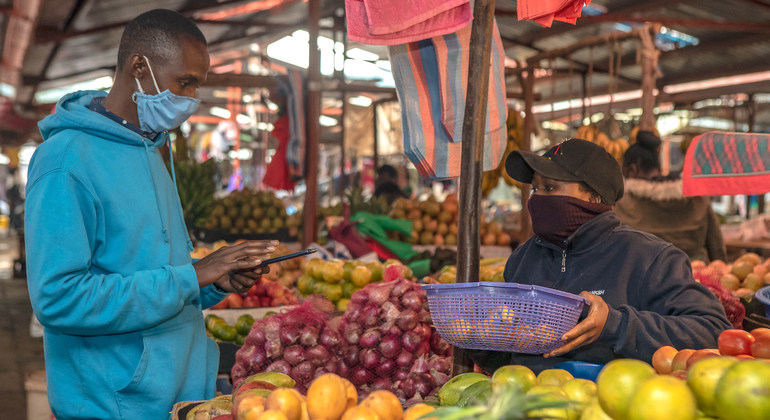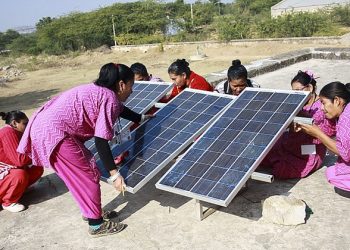The High-Level Political Forum (HLPF), which formally begins on Tuesday, is an annual stock-take of the world’s progress towards achieving the Sustainable Development Goals (SDGs). This year, senior government figures are meeting virtually, via video-conferencing software, to discuss and debate ways to tackle some of the world’s biggest challenges; from poverty, to climate change, peace and security, and gender equality.
National plans in the spotlight
Countries will have the opportunity to present their updated plans for making the 17 Goals a reality (known as Voluntary National Reviews), and several UN, and other intergovernmental bodies will also provide input to the discussions.
The extent to which the COVID-19 pandemic has affected so many aspects of society, and the economy, is reflected in the 2020 programme: the theme of “building back better” after the pandemic is the background to many of the sessions over the major 10-day conference, covering such areas as poverty reduction, financing for developing countries, protecting the planet, and access to sustainable energy.
A decade of action
The Secretary-General’s latest report on progress towards the SDGs, which will form the basis of discussions, notes that 2020 marks the beginning of a “decade of action and delivery for sustainable development”, during which the pace and scale at which the goals are achieved will be ramped up.
The report notes that the global crisis resulting from the spread of COVID-19, has had a major effect on these targets, with health systems overwhelmed, businesses shut down, and 1.6 billion students kept out of school; the poor and vulnerable have borne the brunt of the pandemic, and tens of millions are expected to experience extreme hunger and poverty.
Focus on inequality and climate change
The discussions held during the forum will also be informed by a second report from the Secretary-General, which focuses on how to deliver the SDGs, in light of the pandemic. In it, the UN chief outlines two overarching themes: reducing inequality, by making economies more sustainable and just; and committing to “rapid and sustained” carbon dioxide reductions.
The first theme is described as a key strategy to reduce global poverty. Progress towards reduction has slowed in recent years, and it is projected that in 2020 alone, the pandemic could lead to up to 49 million people falling into poverty.
Improving income distribution, says the report, can make a major impact, not only in keeping people above the poverty line, but also in contributing to faster economic growth, as the poorest in society gain greater spending power.
Reducing emissions of carbon dioxide, and other greenhouse gases, is essential if the international community’s goal of keeping an overall global temperature rise to 1.5 degrees above pre-industrial levels is to be met. Policies and strategies currently in place, warns the report, do not go far enough, and there is a real risk of significantly overshooting the target.





